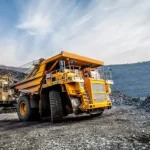Benefits of technological development are priceless and it is therefore incumbent on African economies to capitalize on their strong partnership with China.
On July 7, 2019, the African Continental Free Trade Agreement was officially implemented, becoming the world’s largest free trade area since the creation of the World Trade Organization.
Among other things, it will create a single continental market for goods and services and provide value for investors because if implemented successfully, accessing Africa’s 1.2 billion consumer market should be a smooth ride and serve as a catalyst for foreign direct investments.
Africa needs technological support to realize the gains of AfCFTA and other initiatives and it is therefore heartening to see private Chinese enterprises taking up the initiative to invest on the continent.
It is therefore not surprising that the African Union has signed a three-year memorandum of understanding with Chinese tech giant Huawei to strengthen sectors including the internet of things, cloud computing, broadband, the rollout of 5G networks and artificial intelligence.
This is a confirmation of Africa’s need for Chinese technology irrespective of current sanctions from the world’s largest economy, the United States.
From smartphones to smart cities, Chinese involvement will continue to be positive in Africa.
Chinese mobile phone makers have been smart to tailor their products for the African market with features such as long battery life to address Africa’s unstable power supply in certain areas.
China’s Transsion, the maker of Techno and Infinix phones, and Huawei have substantial shares of Africa’s mobile phone market; 34.3 percent and 9.9 percent, respectively.
Transsion has a factory in Ethiopia for assembling and testing its phones in addition to research and development centers in Nigeria and Kenya. And aside from the creation of jobs through technology, their physical presence on the continent can facilitate the transfer of technology and learning.
On its part, Huawei has partnered with African governments to build much of the continent’s telecommunications, offering quality but affordable alternatives.
Meanwhile, in helping African retailers tap into China’s large consumer market, China’s e-commerce giant Alibaba launched its Electronic World Trade Platform in Rwanda in 2018 to promote cross-border trade between Africa and China. But beyond promoting e-commerce between China and Africa, we believe that, this initiative can be the bedrock for an intra-country e-commerce system boosting trade between African countries especially with Africa’s free trade area policy taking shape.
The broadcast media is also not left out of this equation as we see Chinese electronics and media company Star Times playing an active role in the switch from analogue to digital transmission on the African continent.
These examples and many more are evidence of the Chinese contribution to Africa’s technological development.
As developing countries are entreated to focus on technology and learning transfer as a means to becoming independent and controlling their technological infrastructure, it is incumbent on Chinese technology companies working with Africa to also exhibit good faith by providing the right training required by their hosts with no holdbacks and withholding of secrets.
Developing higher technology and placing it within the global economic integration has enormous prospects and challenges. And it positions China within the purview of global economic and technological forces.
The prospects of this development is the competitive advantage and global economic edge that China wields over emerging and already developed economies. And this will strengthen China’s goal of promoting equitable and efficient global trade.
The Chinese technological transformation and contribution to global development is a success achieved in one generation.
China’s economic and global trade growth is inseparable from the systematic and progressive development of its technology.
Appropriate and reliable high technology is acknowledged to have been a catalyst for the acceleration of China’s economic and infrastructural development.
Therefore, with Africa home to the world’s youngest population – 60 percent of Africans being under the age of 25 – it is not surprising to see many African countries investing heavily in technology and its related infrastructure.
So, what does this age statistic mean? It shows a booming market for technology and development. And aside from population, other events and indices such as the growing demand for industrialization puts Africa at the same point as China when the latter was beginning its economic transformation in the 1970s.
The benefits of technological development are priceless and it is therefore incumbent on African economies to capitalize on their strong partnership with China, and innovate with China’s experience and knowledge.
Authored by Timothy Karikari and Ohene Opoku Agyemang















